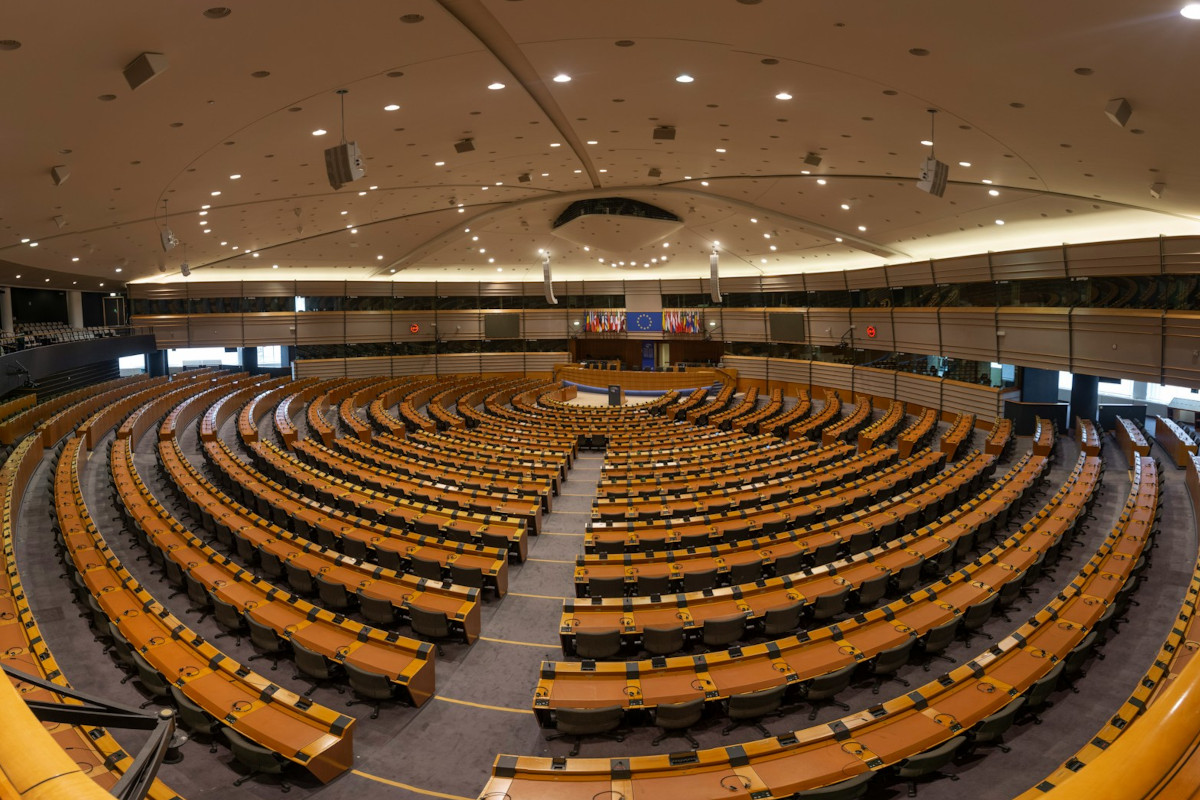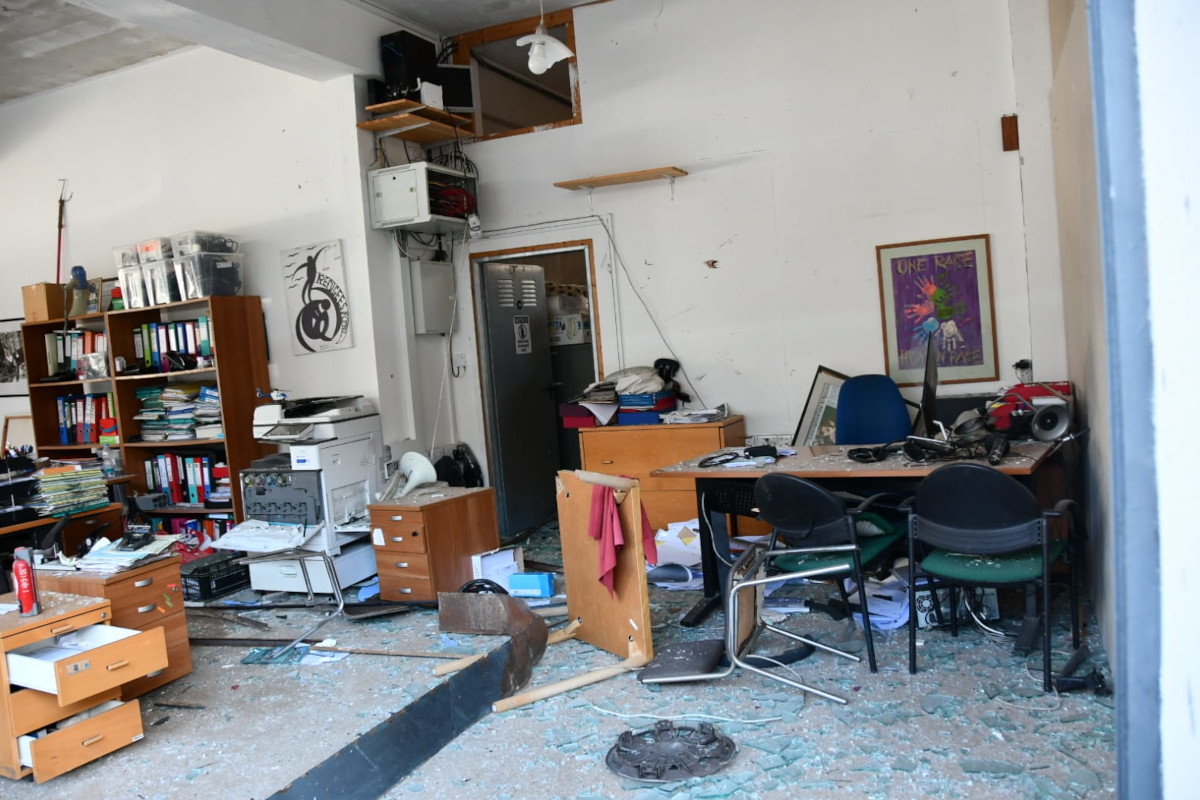MEPs can still halt the EU's harmful migration pact, say civil society groups
Topic
Country/Region
13 February 2024
On 14 February, MEPs in the European Parliament's civil liberties committee will vote on the legislation that makes up the EU's Pact on Migration and Asylum, following political agreement between parliamentarians and EU member state representatives in December. A statement signed by more than 80 civil society organisations, including Statewatch, calls on MEPs to vote against rules that will have "devastating implications for the right to international protection in the bloc and greenlights abuses across Europe including racial profiling, default de facto detention and pushbacks."
Support our work: become a Friend of Statewatch from as little as £1/€1 per month.

Image: Marius Oprea, Unsplash
Amidst warnings from over 50 civil society organisations, EU lawmakers reached a political agreement on the EU’s New Pact on Migration and Asylum in December. The agreement is a continuation of a decade of policy that has led to the proliferation of rights violations in Europe. Moreover, it will have devastating implications for the right to international protection in the bloc and greenlight abuses across Europe including racial profiling, default de facto detention and pushbacks. Tomorrow, MEPs will be presented with a final chance to reject the files in a Committee vote, and give a political signal against the adoption of a Pact that would undermine fundamental rights.
Taken together, the Regulations will usher in a new system for ‘managing migration’ in the EU that is characterised by:
- De facto detention at borders with no exemption for families with children of all ages, accelerated, substandard procedures to assess asylum claims rather than full and fair assessments, and an emphasis on return procedures with lowered safeguards.
- Far more asylum applicants will end up in border procedures and, through the ‘legal fiction of non-entry’, will not be considered as on EU territory, which would lead to lower safeguards and heightens the risk of human rights violations and pushbacks at borders. Even unaccompanied children can be held in border procedures when state authorities consider them a ‘danger to national security or public order’. Moreover, experience has shown that containing large numbers of people in border areas for prolonged periods leads to the chronic overcrowding and inhumane conditions, as witnessed on the Aegean islands.
- Through the broadening of the ‘safe third country’ principle, people asking for asylum will be declared inadmissible and increasingly deported to countries outside of the EU on the basis of a widely-defined connection with those countries, heightening the risk of refoulement. In the past, this has manifested in failed agreements like the EU-Turkey deal, externalising the processing of asylum claims to third countries.
- In the absence of safe and regular pathways, people seeking safety or livelihoods are forced to take ever more dangerous routes, resulting in 2023 being the deadliest year on record since 2015. In the Mediterranean alone, more than 2,500 individuals were reported as dead or disappeared last year, a figure that is only the tip of the iceberg. The Pact fails to address this, and instead continues to reinforce Fortress Europe.
Civil society and human rights watchdogs have consistently reported on systematic violations of the fundamental rights of people seeking safety or livelihood, particularly racialised communities by denying them access to shelter, services, and asylum and resorting to pushbacks en masse. All this, whilst pursuing policies that seek to criminalise movement at large, contributes to a shrinking civic space. The Commission put forth the New Pact as a ‘solution’ for uneven standards in the implementation of a Common European Asylum System across Member States. Yet, the Pact does nothing to remedy this nor support Member States receiving large numbers of arrivals at the external borders. The ‘first country of entry’ principle remains and there will be no mandatory relocation of people saved through Search and Rescue missions – an initiative that could have provided humane and sustainable solutions through the proportionate distribution of asylum applicants throughout Europe. Instead, Member States that do not directly receive arrivals can avoid responsibility-sharing by financing border fortification and immigration detention facilities in border Member States or by funding dubious ‘projects’ in non-EU countries.
The negotiations were rushed towards closure by the European Commission and the Spanish and Belgian Presidencies of the Council, leading to more than 48 hours of marathon trilogue negotiations and the abandonment of the last minimal safeguards that had been upheld by the Parliament. What remains is an extremely complex legislative framework that does not provide any effective solution to the migration management issues raised over the past years, and fails to keep people safe. The agreement, at its core, replicates every principle of the Council’s mandate.
We, the undersigned, call on MEPs to reject the Pact in the upcoming LIBE vote. It creates a system whereby the right to seek asylum in the EU is severely threatened and will engender a proliferation of human rights violations against people across Europe due to their migration status.
- Access Now
- ActionAid International
- AiA-Alternative Informatics Association
- AMERA International
- ARCI
- Avocats Sans Frontières France
- Be Aware And Share (BAAS)
- Better Days Greece
- Birlikte Yaşamak İstiyoruz İnisiyatifi (We Want to Live Together İnitiative) / Türkiye (Turkey)
- Bits of Freedom
- Boat Refugee Foundation
- Border Violence Monitoring Network (BVMN)
- Cairo Institute for Human Rights Studies (CIHRS)
- Centre for Peace Studies
- Churches´Commission for Migrants in Europe (CCME)
- CILD
- CIRÉ asbl
- CNCD-11.11.11
- Collective Aid
- Dråpen i Havet / Stagona
- Draseis sti Geitonia
- ECHO100PLUS
- Equal Legal Aid
- Equinox Initiative for Racial Justice
- EuroMed Rights
- European Civic Forum
- European Network Against Racism
- European Sex Workers Rights Alliance
- Federation of protestant churches in Italy (FCEI)
- Fenix Humanitarian Legal Aid
- Flucht, interkulturelle Arbeit, Migration, Diakonie Hessen,
- ForRefugees
- Fundación para la Innovación, Investigación, Formación y el Desarrollo Comunitario (FÜNDEC)
- Greek Council for Refugees
- Geloof & Samenleving
- Greek Forum of Migrants
- Grenzenlose Wärme – Refugee Relief Work e.V.
- Hermes Center
- HIAS Europe
- Homo Digitalis
- Hope Cafe Athens
- Human Rights Watch
- HumanRights360
- I Have Rights
- Infokolpa
- Institute Circle
- Inter Alia
- International Rescue Committee
- Inventati
- JRS Europe
- Kerk in Actie
- LDH (Ligue des droits de l’Homme)
- Legal Centre Lesvos
- Lesvos Solidarity (LESOL)
- Lighthouse Relief
- Ligue des Droits de l’Homme (LDH)
- Ligue des droits humains
- Migration Policy group (MPG)
- Mobile Info Team
- Network for Children’s Rights (Greece)
- Northern Lights Aid
- Oxfam
- Peace Institute (Mirovni inštitut)
- Platform for International Cooperation on Undocumented Migrants (PICUM)
- Project Armonia
- Project ELPIDA e.V.
- Quaker Council for European Affairs
- ReFOCUS Media Labs
- Refugee Legal Support (RLS)
- Refugees Welcome Italia
- Salud por Derecho
- Samos Volunteers
- Save the Children
- Sea-Watch
- Second Tree
- Sienos Grupė (Lithuania)
- SOLIDAR
- Statewatch
- Still I Rise
- The European Region of the International Lesbian, Gay, Bisexual, Trans and Intersex Association (ILGA-Europe)
- Velos Youth
- WissenschaftlerInnen für den Frieden Deutscland (Academics for Peace in Germany)
- Yoga and Sport with Refugees
Our work is only possible with your support.
Become a Friend of Statewatch from as little as £1/€1 per month.
Further reading

Tracking the Pact: Council for detention of families, against legal advice and sibling reunion
A discussion document circulated by the Spanish Presidency of the Council of the EU prior this week's crunch trilogues on new migration and asylum legislation sets out the Council's red lines: families with children should not automatically be excluded from border procedures, and thus may be detained; free legal advice should not be provided to asylum applicants; and siblings should not be considered as family members. The Council also wants to maintain "a menu of derogations as broad as possible."

Tracking the Pact: Human rights disaster in the works as Parliament makes "significant concessions" to Council
Negotiations are close to an end on the new laws that make up the EU's Pact on Migration and Asylum, and the Council - which has consistently favoured rules that will downgrade human rights protections - appears to have largely got its way, according a document circulated by the Spanish Council Presidency yesterday. Amongst other things, the document openly admits that the Council is planning to sideline Parliament's concerns over "potential discrimination based on race."

Europe’s (digital) borders must fall: End the expansion of the EU’s EURODAC database
110 civil society organisations, including Statewatch, are calling for an end to the expansion of EURODAC, the EU database for the registration of asylum-seekers. EURODAC, designed to collect and store migrants’ data, is being transformed into an expansive, violent surveillance tool that will treat people seeking protection as crime suspects. This will include children as young as 6 whose fingerprints and facial images will be integrated into the database.
Previous article
Italy: Trento council fined for illegal AI video and audio surveillance projects
Next article
Spotted an error? If you've spotted a problem with this page, just click once to let us know.

